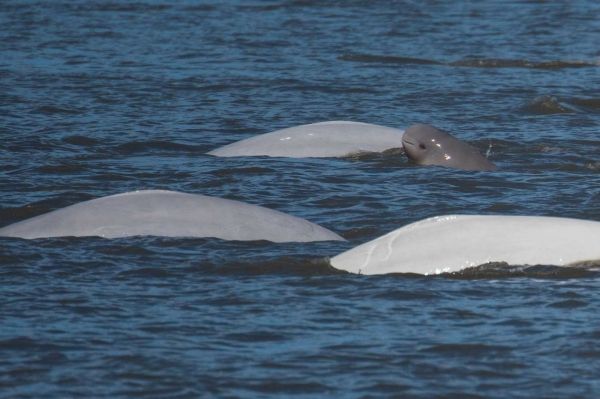An innovative machine learning application will help scientists collect information essential to protect and recover the endangered Cook Inlet beluga whale population.
In 1979, the Cook Inlet beluga population began a rapid decline. Despite being protected as an endangered species since 2008, the population still shows no sign of recovery and continues to decline.
Beluga whales are vulnerable to many threats such as pollution, extreme weather, and interactions with fishing activity. A special concern is underwater noise pollution, which interferes with the whales’ ability to communicate, navigate, and find food. This is a particular problem for the Cook Inlet population, which lives in Alaska’s most densely populated region. The area supports heavy vessel traffic, oil and gas exploration, construction, and other noisy human activities.
To effectively support the recovery of the Cook Inlet population, managers need to know how belugas use habitat seasonally and what threats they face.
Continue reading at NOAA Fisheries
Image via NOAA Fisheries


